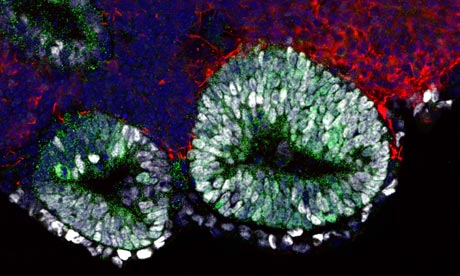Endo Pharmaceuticals reportedly
stopped development of their octreotide implant, despite studies that showed that it was
safe and effective. I wonder why? I mentioned the discontinuation of the implant to my husband, and he suspected that everyone's focus has shifted to
oral ocreotide (a pill that would deliver the same medication). Maybe so, but with a pill you have to remember to take it every day (or however often), you'd probably have to keep it refrigerated so travel might be annoying, and of course there would still be the whole hassle of getting your prescription filled, etc, etc. Don't get me wrong! The pill sounds great too! But I really wanted to try the implant and I was waiting for it to become available.
I tried to join the clinical trial for the implant a few years ago, but I was disqualified because my growth hormone levels were beyond the allowable levels while on an alternate medication. I was so disappointed! That implant gave me the promise of being "normal" for 6 months at at time... no injections every few weeks, no visits to the medical center, and no struggles between the health insurance and pharmacy every time I had to refill my prescription. No reminders that I'm different than everyone else for 6 months.
Earlier this year I met one person at the
acromegaly community conference who had the implant, and she seemed pretty happy with it (she made it into the clinical trial plus they had an extension). I looked at the place where her implant was inserted and it looked pretty subtle, it seemed comfortable enough, and if it's true that you don't have to think about it for 6 months, then I'd be so thrilled!
These days I have my intramuscular ocreotide injection administered at home, by my husband who has been trained by a nurse on how to do it properly. I also have a short acting subcutaneous version I give myself in addition to the long acting one, just for days when I can feel my symptoms acting up (swelling, headaches, joint pain, acne, etc). I just happened to have my intramuscular shot today and that's what reminded me of the article I saw about the implant being discontinued. Even having the shot done at home is still a hassle, with the ordering/refilling, storing, scheduling, mixing and injecting. I have a huge bin of "sharps" in one of my cabinets and every time I see the medication in the fridge I'm reminded that there's something wrong with me. I worry about what people will think if they see all my sharps in the bin and the medication when they come over. Oh yeah, and sometimes the injection hurts (although my husband has gotten really good at making it quick and relatively painless).
I wish they would have continued bringing the implant to the market. If nothing else, it would have given acromegaly patients like us
OPTIONS and potentially
FREEDOM from a routine of ongoing injections. I was so happy that people were at least trying to make our lives a little easier, as opposed to just accepting whatever existing treatments were out there already. I appreciate the all
the work that every researcher does towards creating new treatments (everything that's out there right now, things that are shelved like the implant, and the oral one that's in the works). It's important that people keep working on better treatments, and don't forget that as the acromegaly treatment landscape more competitive, it could drive the prohibitively high price of treatment down for everyone.
Anyway, hopefully people are really just working on a real end-of-story
CURE for all us. There's some amazing research going on out there with viruses plus our own immune system that has shown to be effective for cancer. It can't be that much further down the line before this knowledge is targeted towards pituitary tumors! Till then, I hope we'll all be here for each other.





